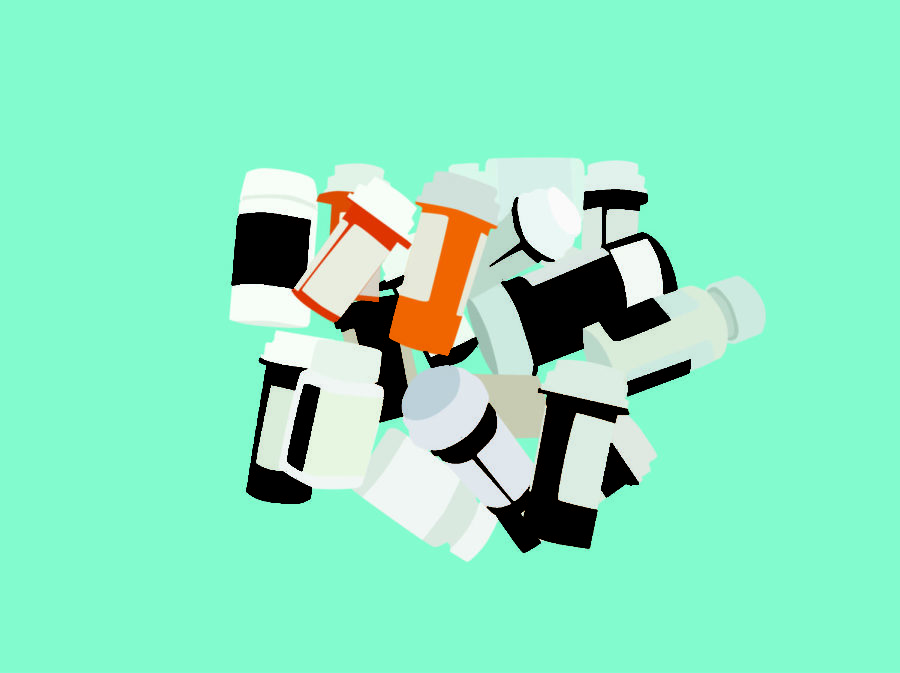Opinion: There is a side of the opioid epidemic most people don’t see
Photo credit: Ariel Landry
December 2, 2018
Living in New Orleans, a city infamously known for its high rates of illegal drug usage, you tend to hear a lot about the opioid epidemic. Local news outlets constantly cycle through horrible stories of overdoses and lives lost from the unprescribed use of opioids and narcotics. Yet, they rarely report on the other side of this so-called “crisis.” Patients across the country are prescribed these powerful medications in an effort to treat their severe pain that other non-medicinal forms of treatment have failed to alleviate. I am one of these patients.
I currently take a synthetic opioid (I will be using the word opioid here, but I mean opioids, opiates and narcotics) called Fentanyl. While this is often known as one of the most dangerous drugs when it comes to accidental overdoses, especially in the New Orleans area, without this medication my quality of life would be significantly reduced.
I suffer daily with chronic pain due to a host of lower back issues and a handful of other disorders and diagnoses (for those of you who are interested in the list: lumbar disc herniation, sciatica, upper back arthritis, chronic migraines, bone spurs… I could go on). My journey with chronic pain started at 14 years old and despite listening to all of the orders from my various doctors, every treatment I underwent only succeeded in dwindling what little optimism I had left. I even went under the knife during the peak of my junior year of high school — twice — only to wake up in more pain than I had been in previously. So when my pain management doctor, after all of this, suggested that I take Fentanyl daily for my pain, I was skeptical. After years of immobility and feeling isolated from my peers, this medicine breathed a whole new life into me. I was no longer unable to rise from my bed for the majority of the day or being forced into trying new procedures that would end up failing. With this medicine by my side, I enrolled at Loyola University, without the fear that my pain would inhibit me from getting a degree.
Then, I began to feel punished by the opioid epidemic. In moving to New Orleans, I was unable to find a doctor within a 30 mile radius that was willing to prescribe me the life-changing medication that brought my pain down to a livable level. While there is currently no legislature in place that restricts the prescribing of opioids, an increase of patrolling and shutting down of practices by the FDA in recent years has caused doctors to hide their prescription pads and turn away chronic pain patients who rely on these medications. Patients like myself are the ones being punished for the opioid crisis, even though studies show that those who are safely prescribed these medications are at a risk for addiction that falls between only .07 and eight percent, according to the Center for Disease Control. And, according to the New England Journal of Medicine, when opioids are prescribed properly with screening and follow through care, the risk of addiction goes down significantly.
While opioids, when used incorrectly, can be dangerous and life threatening, punishing chronic pain sufferers who rely on the strength of these medications to help them in everyday life is not how this crisis is going to get resolved. The majority of opioid abusers do not obtain their medication from a healthcare setting (according to the Substance Abuse and Mental Health Services Administration), so the FDA should focus their efforts elsewhere if they truly want this epidemic to end.









Dustin Parker • Dec 2, 2018 at 9:28 pm
Our stories are similar. I have Adhesive Arachnoiditis and with proper pain symptom treatment with opioids I went back to college and earned a Masters Degree. Without treatment I cant stand sit or walk very well and not have severe intractable pain. I have concerns about the future of pain management. Opioids help some people like you and I, but no one EVER hears any of this when they write about the opioid epidemic. I want to thank you for your story and encourage you to continue to advocate for access to medical care that gives people like is quality of life.